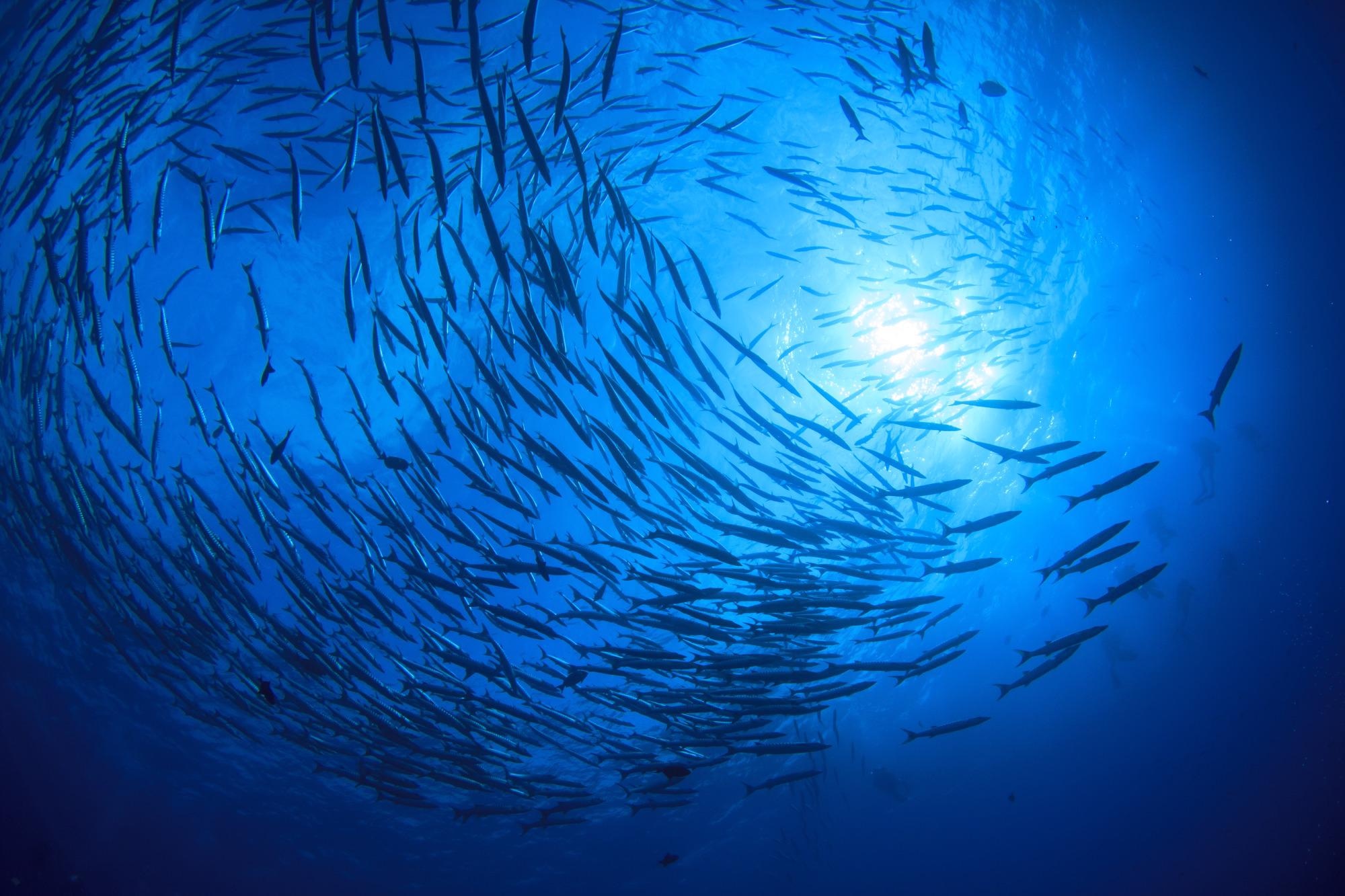
Image Credit: Rich Carey / Shutterstock.com
When it comes to considering the impact of human-caused pollution on marine life, there could be one major factor that we have been overlooking; the effects of noise pollution.
The soundscapes of the world's oceans today are massively different from how they were prior to the industrial revolution. As human activity grows in the period of modern history that we have dubbed Anthropocene Epoch, its impact has become significant in the world's ecosystems, including a cacophony of noise caused in its oceans.
In a new review paper published in Science¹ Carlos Duarte, a marine science professor at King Abdullah University of Science and Technology (KAUST), Thuwal, Saudi Arabia, and his co-authors examine the rapidly changing soundscape of the Anthropocene oceans and how it negatively impacts marine life.
The changing soundscape of the ocean is not only affected by the rise in human-caused noise, other factors such as rising temperatures melting sea ice, and the reduction in numbers of sound-producing animals also play a role. The authors suggest that these changes are adversely affecting marine life. Thus, creating healthier oceans hinges on reducing and mitigating the noise that is overwhelming the natural sounds of the oceans.
"Changing ocean soundscapes have become the neglected 'elephant in the room' of global ocean change," say the authors. "In an era when societies increasingly look to the 'blue economy' as a source of resources and wealth, it is essential that ocean soundscapes be responsibly managed to ensure the sustainable use of the ocean."
The researchers suggest that 2021 — ironically the International Year of Sound — is the ideal time to mitigate oceanic noise pollution.
Drowning Out the Natural Song of the Sea
Sound travels faster and farther through the oceans than other sensory information such as light and chemicals. As a result, many ocean-dwelling species — ranging from massive marine mammals like great whales to tiny invertebrates — have evolved to use sound to communicate and explore and investigate their marine environment.
This reliance created a preindustrial ocean soundscape dominated by mournful tones of cetaceans — whales, dolphins, and porpoises — as well as the grinding and cracking of sea ice. But these biological and geographical sounds — referred to as biophony and geophony respectively — are now drowned out by noise from vessels, active sonar, synthetic sounds like artificial tones and white noise, and acoustic deterrent devices.
All of these contributions have been found to affect marine animals adversely, as has noise from energy and construction infrastructure and seismic surveys, by compromising hearing ability in marine species and thus causing both physiological and behavioral changes.
The authors point out that as well as acting as a stressor in these ways, there is also some evidence that suggests that anthropogenic noise could also be leading to an increase in mortality for ocean-dwelling species and in their offspring and larvae.
Whilst increased noise levels are adversely affecting marine life in some areas of the world's oceans, in others, marine animals are suffering from the exact opposite dilemma.
A Silent Threat
As well as increasing noise levels and dominating some soundscapes, human activity has actually reduced the level of noise in other soundscapes — resulting in near-silent seas, which can be just as harmful.
Anthropogenic sources that have reduced the oceans' noise levels include the destruction of coral reefs and other habitats and the hunting of sea mammals like whales — which are highly vocal — factors that have severely depleted the number of sound-producing animals in the oceans.
This noise reduction caused by anthropogenic activity is perhaps most evident in observations of natural marine acoustics in the Arctic due to rising temperatures removing a great deal of geophonic noise through the loss of sea ice.
The authors suggest that the growing focus on the ocean-based economy — forecasted to double its contribution to the global gross domestic product by 2030 — means that mitigation efforts should be considered with the utmost urgency. This only becomes more pressing with the growth in deep-sea mining and other new industries, which could be making a significant contribution to noise pollution in the oceans.
Fortunately, the authors suggest that there is a way forward in terms of limiting the damage caused by noise pollution to the ocean's ecosystems. Because the UN Oceans Conference was postponed as a result of the global COVID-19 crisis, that means policymakers will have a chance to address these findings and develop a strategy to reduce noise pollution in the seas when the meeting is held in 2021.
Unlike other sources of pollution and anthropogenic stressors that are damaging ecosystems, mitigation techniques to reduce oceanic noise pollution could have benefits that are felt almost immediately.
"Unlike other sources of pollution, anthropogenic noise is not persistent in the environment once sources are removed," the authors write. "Consequently, legislative actions to reduce anthropogenic noise and incentivize the deployment of existing technological solutions can have near-immediate, positive effects."
References
- Duarte. C. M., Chapuis. L., Collin. S., et al, [2021], 'The soundscape of the Anthropocene ocean,' Science, [DOI: 10.1126/science.aba4658]
Disclaimer: The views expressed here are those of the author expressed in their private capacity and do not necessarily represent the views of AZoM.com Limited T/A AZoNetwork the owner and operator of this website. This disclaimer forms part of the Terms and conditions of use of this website.